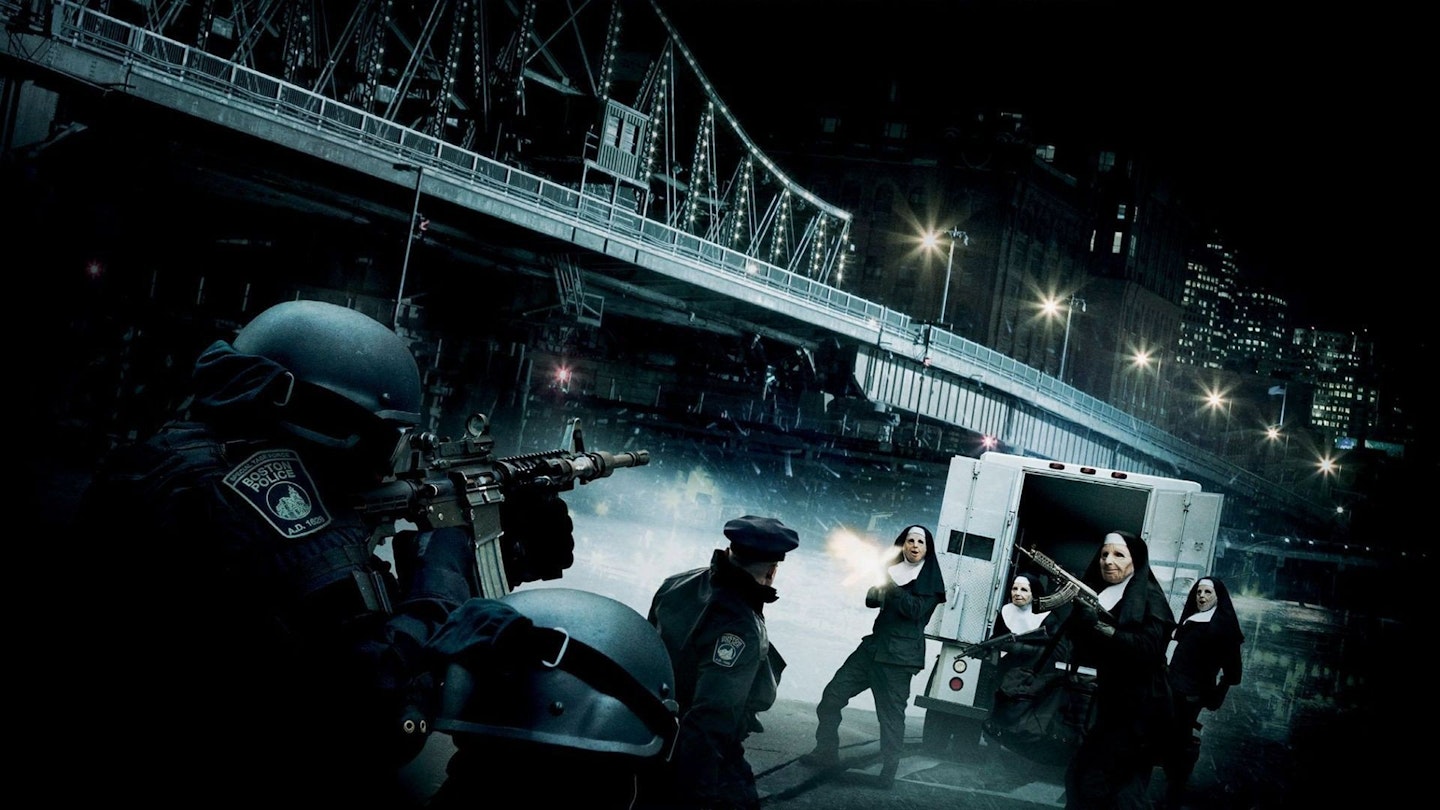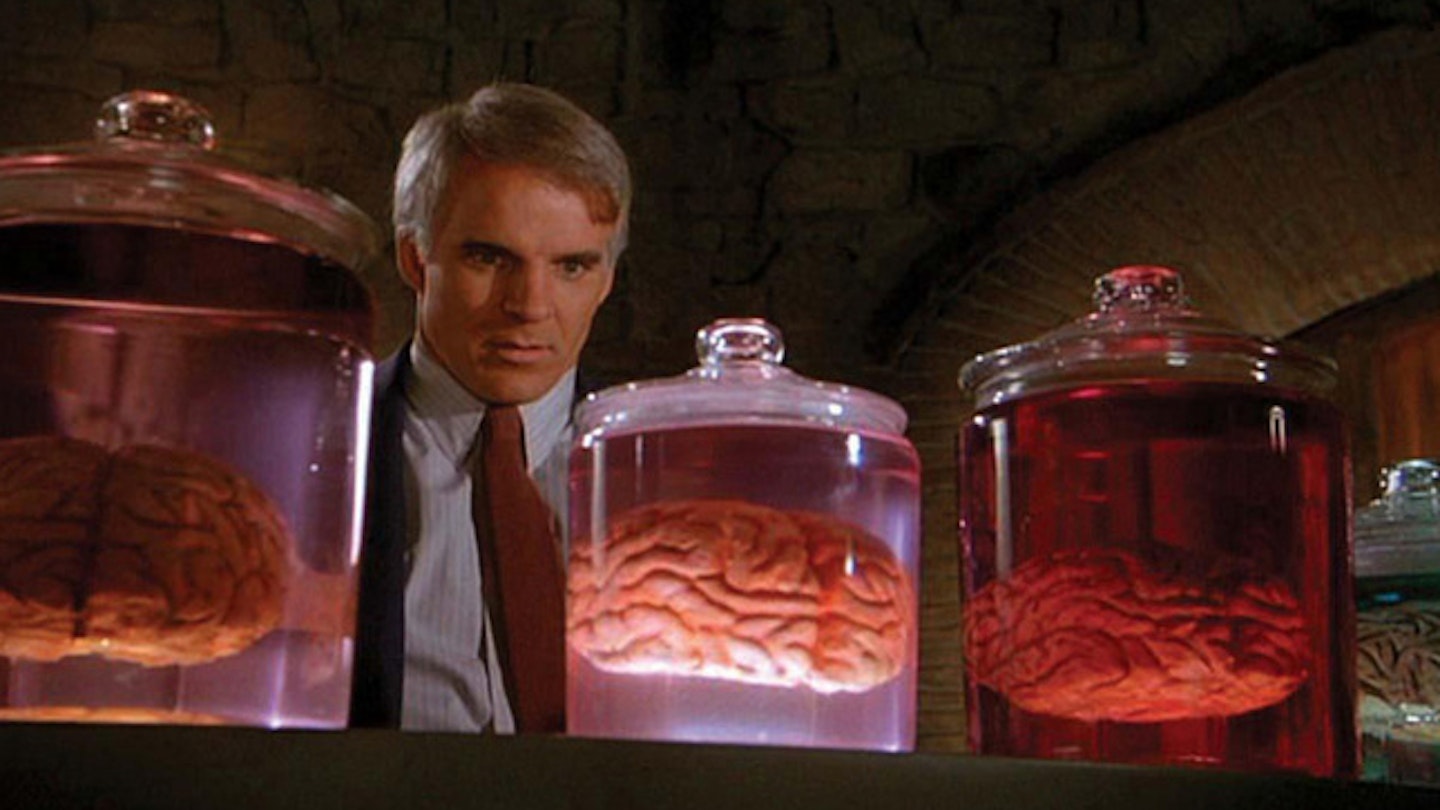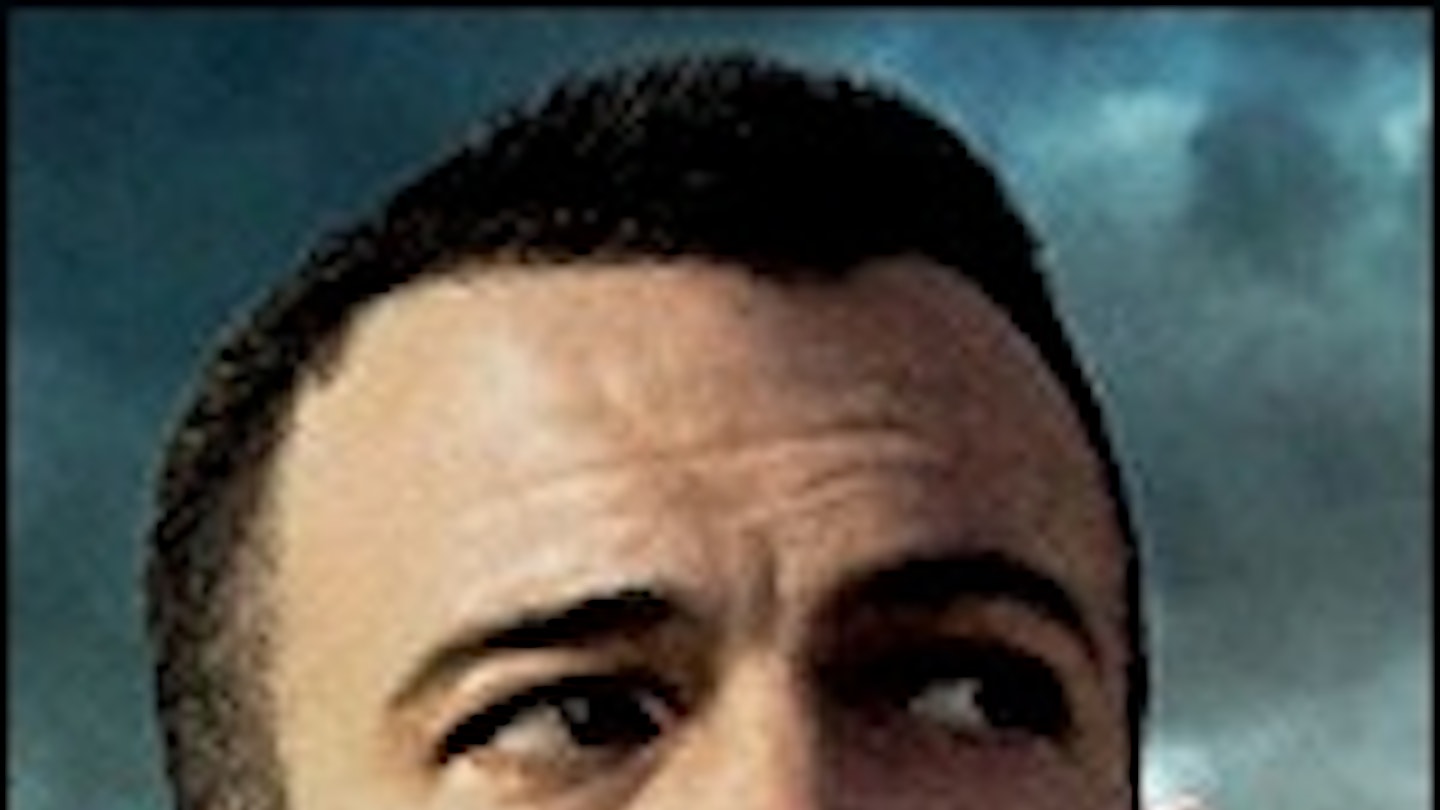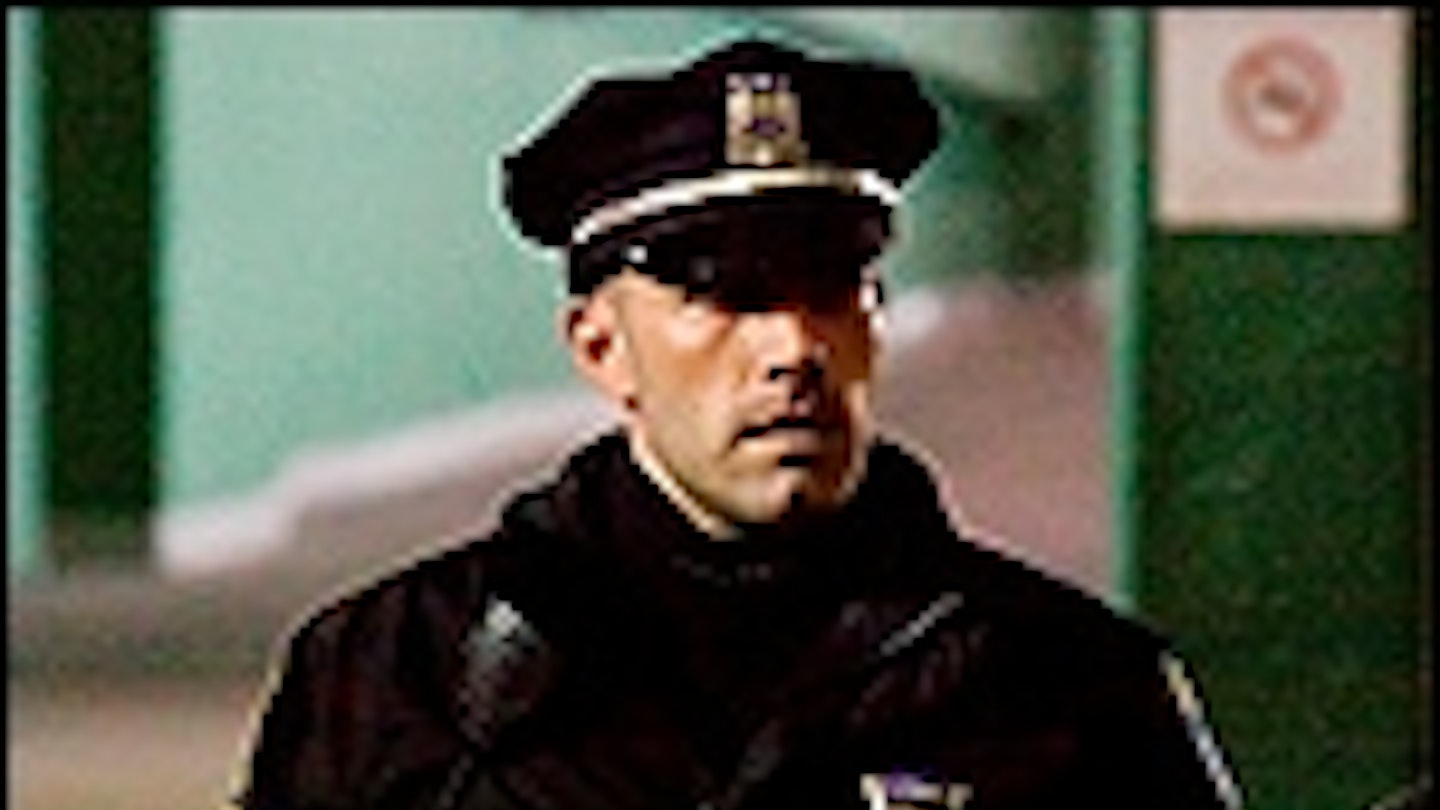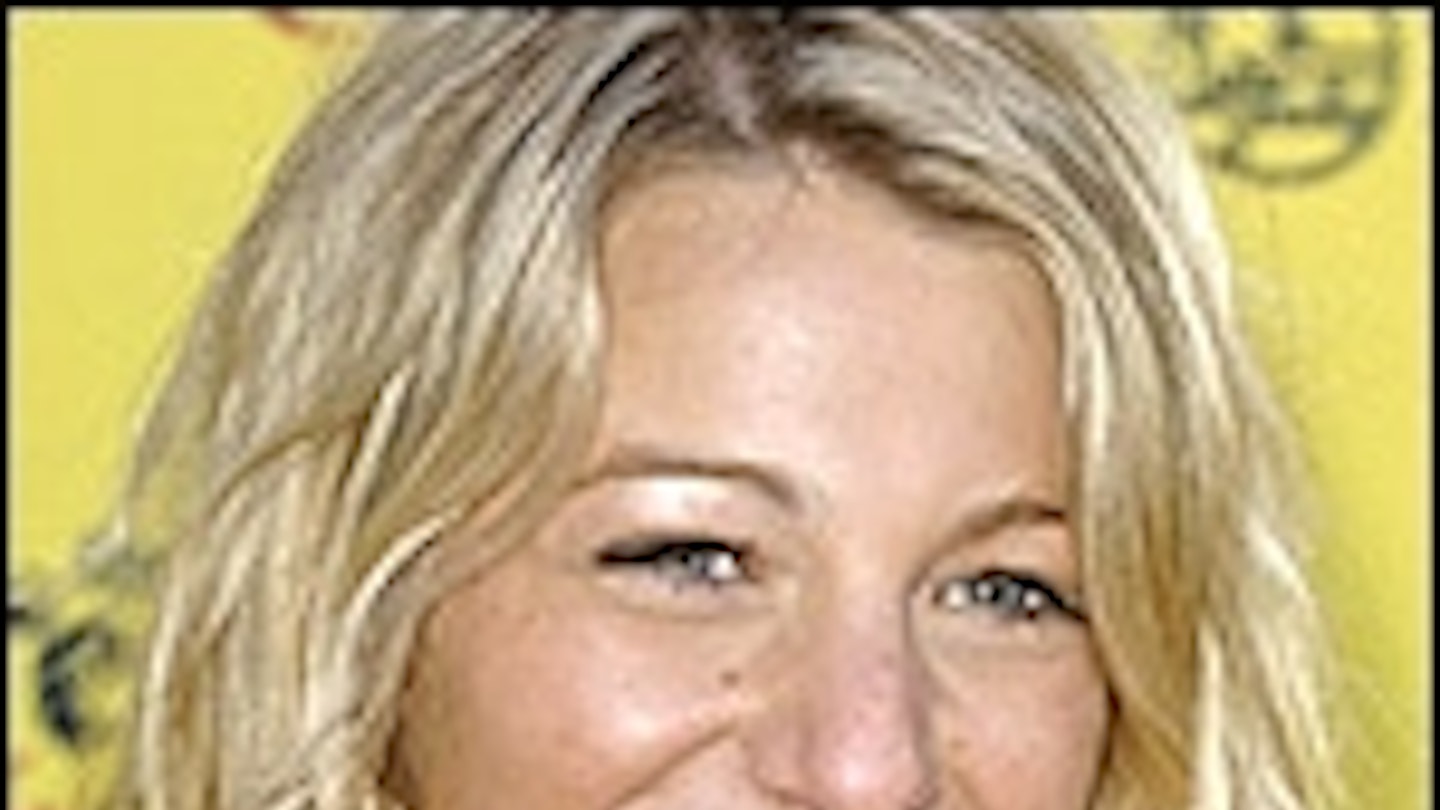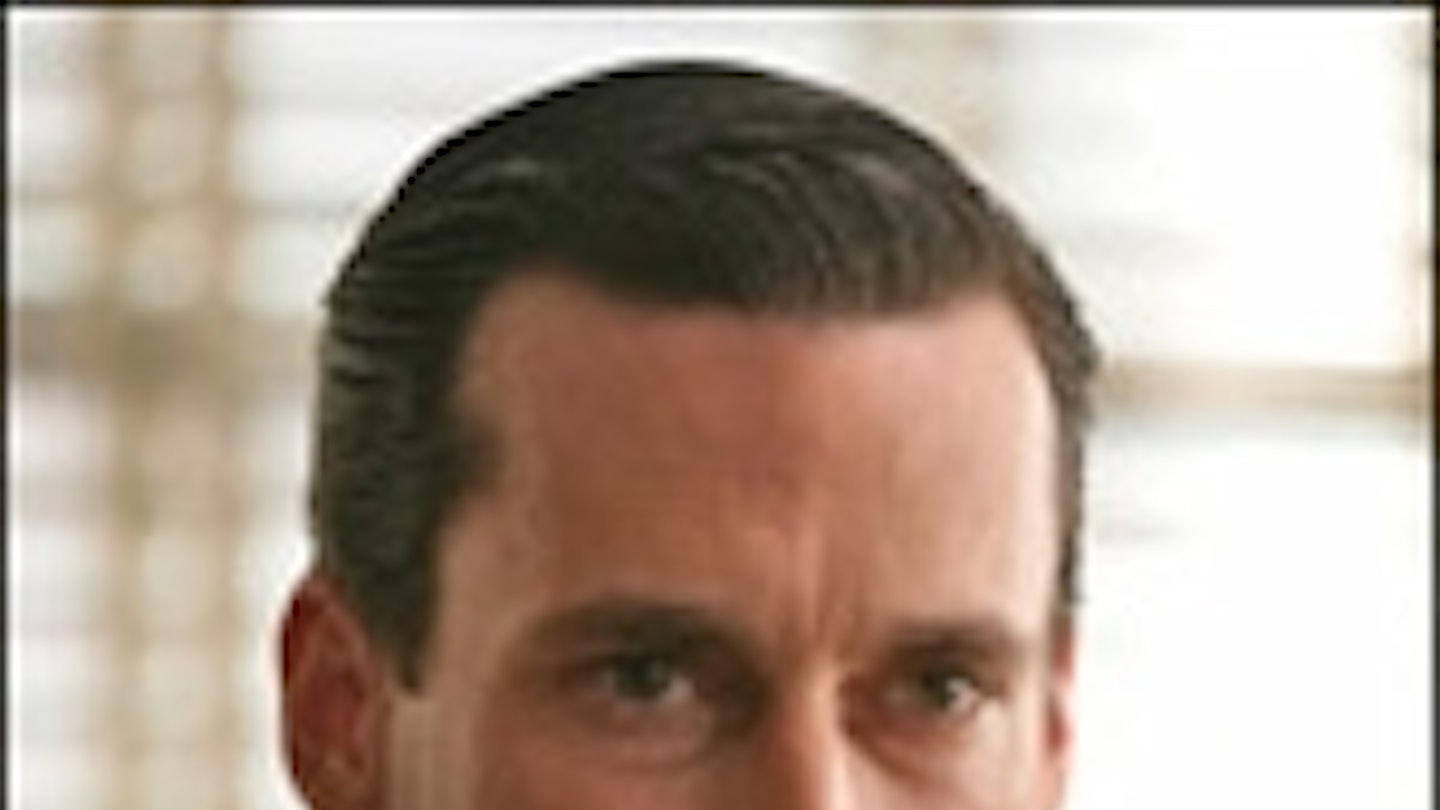There is a moment in Gus Van Sant’s Good Will Hunting when MIT maths whizz Will (Matt Damon) is talking to his oldest friend Chuckie (Ben Affleck) at work on a construction site. Refusing to go to job interviews that befits his genius, Will suggests he’d like to spend the rest of his life as a labourer in Boston, growing old and raising children alongside his best bud. It is here that Chuckie gets mad. “Look, you’re my best friend, so don’t take this the wrong way, but in 20 years if you’re still livin’ here, comin’ over to my house, watchin’ the Patriots games, workin’ construction, I’ll fuckin’ kill ya. That’s not a threat, that’s a fact. I’ll fuckin’ kill ya.”
We all know what happened to Will — he rejected both MIT and his lifelong friends to drive off into the distance with 50p-face. But, in some respects, The Town, Affleck’s second directorial feature effort after the much-admired Gone Baby Gone, examines what might have happened to the kind of guys Will left behind. Like Good Will Hunting, it’s about the restrictive nature of class pride, the push and pull of the old Boston neighbourhood versus the promise of a new life with a girl (both played by an English actress, Minnie Driver in Good Will Hunting, Rebecca Hall here) and the burden of betraying lifelong friends. That it is also a terrific crime thriller, full of both compelling cat-and-mousery and full-throttle action, a showcase for some of the most exciting acting talent around and a confirmation of Affleck’s innate abilities as a director make The Town essential viewing for any serious moviegoer.
As an idea, The Town isn’t 100 per cent original. Affleck’s screenplay, based on Chuck Hogan’s novel Prince Of Thieves and co-written with Peter Craig and Aaron Stockard, has story cores that are well worn — the crim who wants to leave his bad ways behind, the kidnapper who gets involved with the hostage, the neighbourhood overrun by a criminal fraternity who live and die by their own rules — and have filled up crime movies for years. But Affleck has an affinity for Charlestown, the one-square-mile district that accounts for 300 robberies a year, a place where the criminal kingpin (a creepy Pete Postlethwaite) masquerades as the local florist, where even the children can spot a black FBI van surveying a barbecue or where closing the bridge to Charleston is the best way to hem in a getaway car. This isn’t the big-time Boston underworld of The Departed. This is much more small-scale, homespun and younger, bad-guys in bad tracksuit tops primarily concerned with “Xbox and coke”.
Affleck jump-starts his movie with a terrific set-piece straight out of the Point Break playbook. Doug MacRay’s gang, a band of “Skeletors with AKs”, bust their way into a bank, the slick, well-drilled manoeuvres covered in swift, hand-held strokes but never to the point of seasickness. Affleck captures telling, novel moments (MacRay’s gang pile the mobile phones in a candy bowl and drench them in water), the little details that tell you that this gang are driven to keep things clean. None of the action in The Town is overblown or movie movie-ish. A thrilling middle-act car chase takes place in narrow streets, more concerned with getting out of tight corners than flipping cars in slow-motion, and ends on a heart-stopping, very human moment. Affleck is particularly good at mounting short bursts of violence that end almost as quickly as they have begun. His fights are brutal and wince-inducing but always believable.
Yet Affleck didn’t attract this calibre of actors by piling action set-piece upon action set-piece. The Town is full of great drama for great actors (Chris Cooper turns up for one scene as MacRay’s dad and aces it), and there are few better at the moment than Jeremy Renner. As MacRay’s wildcard friend, Jem, who once killed a man because he “didn’t like the kid”, Renner is a force of nature, a volatile, electrifying, deluded, unpredictable presence. There is a scene where he catches MacRay and Claire having a clandestine lunch away from prying eyes. As he pulls up a chair to join them, what plays out is tense, awkward and nerve-jangling, Affleck the director having the sense to pull wide so we see all the dynamics at play.
In contrast, Affleck draws the relationship between MacRay and Claire, the bank teller he takes hostage and falls for, in tentative, borderline lachrymose strokes. It’s one of the more miserable courtships in modern cinema — during their early dates, he tells her how his mother left him in mysterious circumstances, she tells him about her brother who died “on a sunny day”, a fact that becomes important later — bonded by a shared experience that only one of them knows they share. It’s an interesting relationship, and Affleck and Hall give it charm as well as acting chops.
The other plot thread is the investigation into the robberies. In a film that asks you to empathise and, in some senses, root for the bad guys, it would be easy to pitch Jon Hamm’s Fed in the role of Agent Hard Bastard. But the Mad Man does something more interesting, painting Frawley as driven and tough but also piercingly intelligent and quietly Machiavellian. Frawley’s interrogation of MacRay is gripping stuff, two intelligent men butting heads, Frawley giving it maximum vitriol. Yet Hamm also shines in his grilling of MacRay’s ex, Krista (an addled Blake Lively, with this and The Private Lives Of Pippa Lee putting the fluff of Gossip Girl well behind her): starting as a guy chatting up a girl in a bar, it turns into a masterclass in manipulation, by turns gentle and charming, then steely and cold. It is also good to see the usually dapper Don Draper in an anorak and with a gun in his hand. This is just a glimpse of the powerhouse movie star Hamm could become.
Affleck doesn’t get it all right. Some of his stylistic tics — black-and-white flashbacks to crime scenes, a slow-motion moment where a robber, in a nun’s disguise, catches the gaze of a small child — feel like affectations (or Afflectations) and it isn’t as complete a picture as Gone Baby Gone. But it is on a much bigger canvas, and confirms Affleck’s commitment to ambition and seriousness. There is no doubt that The Town will be described as a return to the values of the ’70s golden age. It is a big studio (Warner Bros.) picture based around such weird concepts as character development, grown-up relationships and story, but has none of the worthiness that afflicts awards wannabes. Yet it differs from its ’70s antecedents in that Affleck has a romantic streak, not only for the central relationship, but also for old-fashioned notions like neighbourhood and community. Affleck clearly loves his hometown — the one last heist takes place at the Red Sox stadium, the “Cathedral Of Boston” — and its nostalgia softens the hard-boiled feel. Emotional, smart and muscular, it’s a strong human drama that reaches the parts superheroes and vampires can’t. And all this from that bloke off Gigli.
